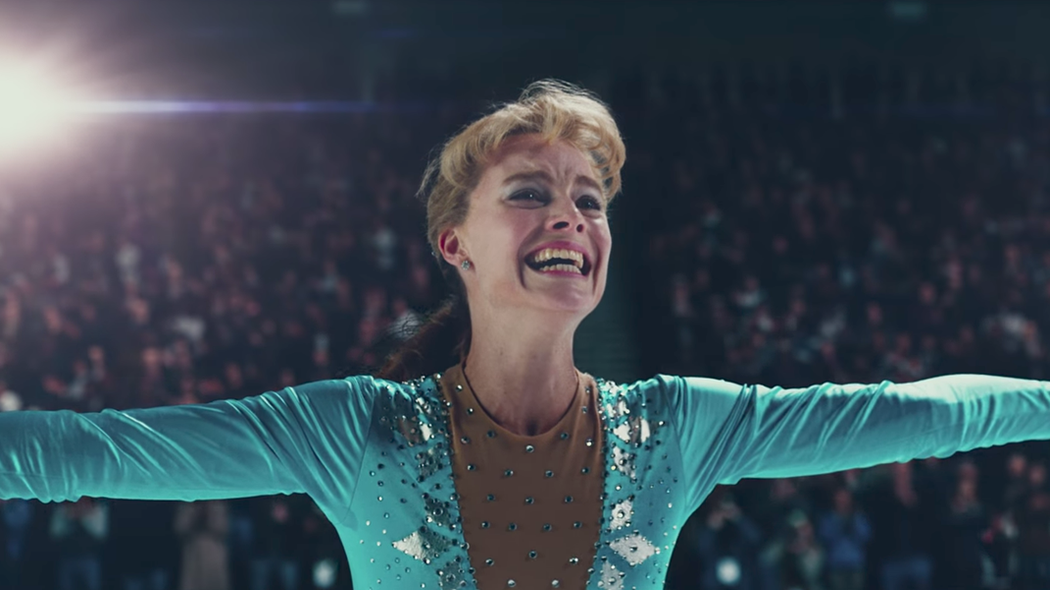

“I, Tonya” is a sympathetic portrayal of American figure skater Tonya Harding’s rise and subsequent fall, following her infamous 1994 attack on fellow figure skater and longtime rival Nancy Kerrigan.
Harding was born into a poor family in Portland, Oregon. Even as a child, she was a bit of a tomboy, often working on cars, hunting, drag racing and chopping wood — as the fictionalized Tonya puts it in the film, she was a “redneck.” By the age of three, however, she already showed promise as a skater, and her mother signed her up for lessons. In her teens, Harding moved up in the figure skating world, dropped out of high school her sophomore year, moved in with an abusive boyfriend to escape her abusive mother and, at 19, won gold in Skate America.
But the reason this film exists and the reason we are still talking about her today was not her skating prowess and the fact the she is the first woman to ever complete a triple axel in competition. Rather, it was her connection to the 1994 attack on Kerrigan. No one will ever know the true extent of her involvement in the attack, but the general belief at the time was that Harding’s ex-husband, with her then-bodyguard, had hired a man to kneecap Kerrigan, in the run-up to the 1994 Winter Olympics. At the time, there was a media frenzy surrounding the attack, and the dominant narrative was that white-trash Harding had attacked America’s princess, Kerrigan.
The first time I watched “I, Tonya,” I loved it. I found it at times funny, at times moving and walked away from it pondering one of Tonya’s last monologues where she looks into the camera and says of her experience with fame: “I was loved, then I was hated, then I was just a punchline. It was like being abused all over again, but this time by you, all of you.”
However, in the sober light of the following morning, I realized that much of what had been funny about the film was Tonya’s abuse. The abuse is a punchline reused throughout the film, and aside from the oafish stupidity of Tonya’s bodyguard, which is honestly pretty hilarious and certainly a highlight, such abuse is practically the only source of humor in the film.
At the same time, the theme of Harding’s abuse is also the pathos of the film. “I, Tonya” oscillates from jerking laughs out of the audience one moment to evoking tears the very next scene. Of course, there certainly is a lot of humor in tragedy, but in “I, Tonya,” the tragedy and humor negate one another, detracting from the seriousness of scenes like the one in which Tonya’s mother tells her that maybe she “deserves to get hit” by playing it for laughs. Similarly, after Tonya comically introduces her abusive boyfriend Jeff Gilooly as “the first boy I ever loved…The only catch was...he beat the hell out of me,” it is a bit jarring when he really does beat the living hell out of her. The audience is left unsure about whether to laugh at that introduction in the first place.
All this makes her line about being abused by “all of you,” (that is, the audience, the consumers of news and media) either a sadistic stroke of ironic genius or, more probably, given how sympathetic — if at times patronizing — the film is towards her, an unfortunate irony that points towards the essential problem with the film —for all our sympathy towards Tonya, her abuse becomes a punchline that all of us can have a good laugh at.
So, why does this somewhat condescending, if sympathetic, portrayal of a mostly-forgotten figure skater from the 90s known basically for one scandal, seem relevant right now? In a recent interview with the Los Angeles Times, the film’s director, Craig Gillespie, said that he saw the film partly as a way to address the “anger in our society starting out with what happened in the election” and “how you transcend that creatively.”
The premise of “I, Tonya” is an attempt to present an emotionally real telling of the Tonya Harding story from Harding’s point of view. It aims to humanize her by presenting her whole story and to show how much she suffered from all the vitriol that the public spewed at her following the attack. Much of the vitriol that was aimed at her stemmed from the environment she grew up in, because she was poor and “white trash,” because she was the type to vote for Trump, which, incidentally, she did — because she was a “deplorable.” And the film is certainly successful to a degree in all these things, but, ultimately, it falls short of its mark. Harding is somewhat one dimensional, and the film lacks the nuance to really explain how she became a world-class athlete despite the abuse and poverty she suffered. It portrays her as a victim of abuse that comes off both somewhat comic and somewhat tragic. With all of the accolades and attention that it has received, it seems that this dumbed-down, somewhat patronizing film has hit a nerve because of its ultimate revelation: that white trash deplorables are people too.